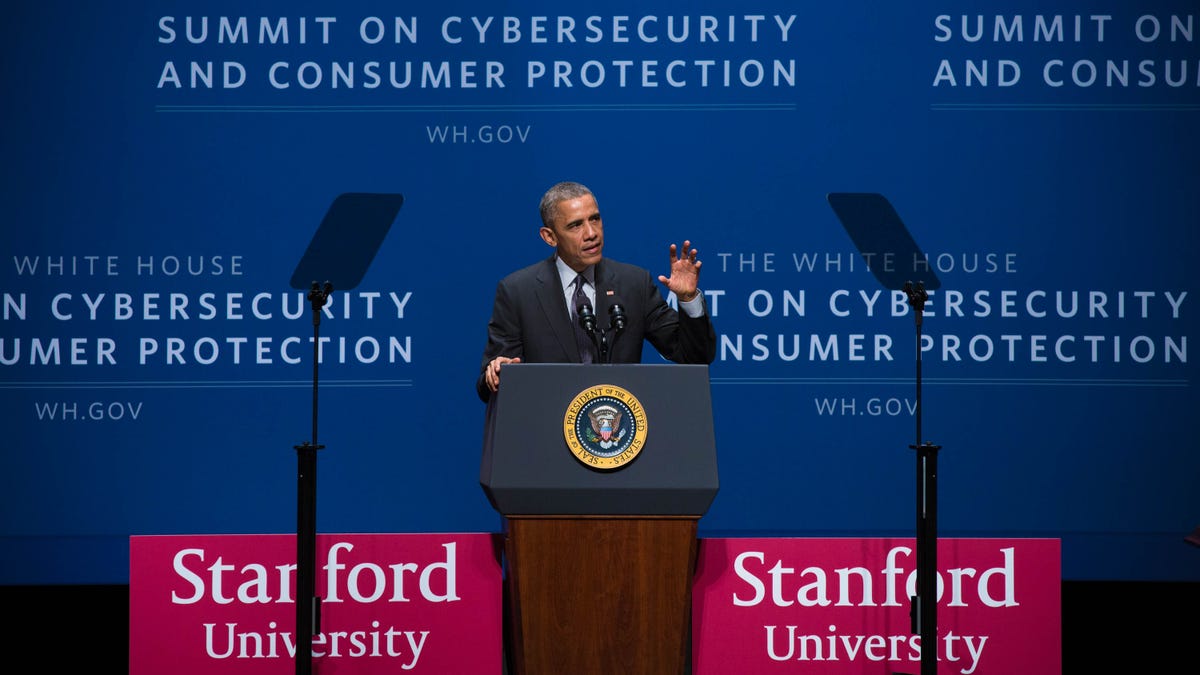Obama asks Congress for $19 billion to stop hacks
The White House has submitted a massive budget proposal that shows just how serious the president is about cybersecurity.

President Obama wants the US to spend $19 billion across a broad range of initiatives, all with the aim of making it harder for hackers to steal information from individuals, companies and government agencies. That's a 35 percent increase over the previous year's budget.
That money, for example, would promote stronger security measures for finance and other online accounts, reduce the government's reliance on Social Security numbers to ID citizens, recruit cybersecurity experts to hunt for intruders and test for weaknesses, and forgive student loans for experts joining the federal workforce. It would also help overhaul the government's aging computer systems.
The proposed budget, sent to Congress on Tuesday, highlights the government's failure to stave off attacks from professional hackers. Last year, for example, the US Office of Personnel Management revealed hackers grabbed the personal records of more than 21 million federal workers, including the Social Security numbers, fingerprint images, and histories of substance abuse and mental illness of federal job applicants and their family members. In December, officials discovered hackers working for a foreign government had installed a backdoor on computing gear from Juniper Networks that let them spy for three years on encrypted communications of US agencies and private companies. In 2014, a cyberattack exposed the personal information of about 800,000 workers for the US Postal Service.
"This infusion of funds is sorely needed," Congressman Jim Langevin (D-Rhode Island), a longtime advocate for stronger cybersecurity, said in a statement. It "will pay for itself through increased efficiencies while dramatically increasing security."
Ari Schwartz, Obama's former director of cybersecurity at the US National Security Council, said the budget proposal represents an important shift in spending priorities. Until now, the government has neglected the state of computing equipment at agencies like the Department of Veterans Affairs and the Office of Personnel management. Critics argue these old systems are just too hard to defend. Obama's budget includes $3.1 billion specifically to update outdated equipment.
Now comes the $4 trillion question, which happens to be the total budget proposed for the 2017 fiscal year: How much will both sides of the Congressional aisle be willing to pony up for better security, given the massive cyberbreaches?
Schwartz, now a cybersecurity attorney in Washington, DC, believes there's a good chance Obama could get the funding he wants.
"In general, cybersecurity is a nonpartisan issue," he said.

